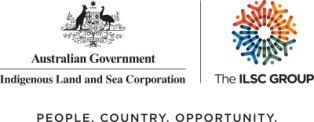The purchase of 1200 mainly Brahman bulls by the Indigenous Land Corporation is a vote of confidence in the future of the beef cattle industry in Australia.
Director of the ILC and Chairman of the ILC Business Employment and Training Committee and well-known Queensland businessman Kevin Driscoll said, “In the last four years, the bulls had been purchased in central Queensland and sent north to properties on Cape York and west to other properties in the Kimberley and Pilbara to improve the quality of the ILC cattle herd.
“Over the last several years, ILC cattle properties have been turned around into profitable enterprises and much of the profit has been reinvested in local economies,” Mr Driscoll said.
“We are developing a number of properties, particularly in Queensland, the Northern Territory and Western Australia which have previously been under utilised and, in conjunction with Indigenous landowners, we are bringing large tracts of land back into production.
“We are using Queensland bulls because of their excellent quality, and this is playing a significant role in improving the cattle herd on ILC and other Indigenous-owned properties.
“We have also purchased Charbray bulls as an experiment on cross-breeding on two of our properties in Western Australia, Roebuck Plains and Myroodah Luluigui. Western Australian agents now consider cattle on Roebuck and Myroodah Luluigui to be top quality and equal to the best of Western Australian cattle.
“The ILC believes the pastoral and tourism industries hold great economic development potential for Indigenous people in rural and regional Australia and therefore ILC properties have a crucial role in providing employment, training and education opportunities for local Indigenous people.
Indigenous Affairs Minister Mal Brough said, “The Australian Government is determined to accelerate Indigenous economic development through creating jobs and building self reliance.
“The ILC is playing its part. I congratulate the ILC Board for dramatically improving the management of its properties in recent years,” Mr Brough said
“The ILC is now creating jobs in the pastoral and tourism industries and providing training and education opportunities.
“It is critical for the future of Australia’s indigenous people that they take up opportunities in the mainstream economy.
“The ILC through its commercial activities is showing that partnerships between governments and private enterprise can deliver real and lasting benefits for Indigenous people and local economies.”
Background Profile:
- The ILC Board has directed that the pastoral and tourism industries will be a priority over the next three to five years and has approved Strategic Projects at Home Valley Station, Durack River, Roebuck Plains and Karunjie Stations in WA; Mimosa, Bulimba, Merapah and Crocodile and Welcome Stations in QLD and Elsey Station and Hodgson Downs in the NT and the sheep property Murrayfield in Tasmania.
- The ILC directly manages 10 businesses on ILC-purchased land. These are predominantly pastoral industry businesses, operating approximately 42,500 head of cattle and 24,000 sheep, but also include tourism ventures and two fruit and citrus orchards.
The ILC, as Australia’s nineteenth largest cattle producer, provided a mix a full-time, part-time and contract work in its businesses for 194 Indigenous people in 2005-2006. Over the next three to five years, the ILC cattle herd will grow from 42,500 to 80,000 and will significantly increase Indigenous people’s training, employment and education opportunities.
- The ILC and the WA Agriculture Dept. have jointly funded the Kimberley Indigenous Management Support Service which has increased commercial pastoral activity on ten Indigenous-owned cattle stations. This project won a 2005 Prime Minister’s Award for Excellence.
- In the NT, the ILC, the NT Government, the Northern and Central Land Councils, DEWR and the Northern Territory Cattlemen’s Association have jointly funded the Indigenous Pastoral Program. This has seen a significant increase in cattle numbers of 27,000 on Indigenous land and more than 14,500 square kms of land under improved fire, feral animal and weed control management and provided significant pastoral industry training to Indigenous people. The program aims to create 1,000 Indigenous pastoral jobs over the next 10 years.
For further information contact:
Eric Roberts on 0417 818 482
Peter Keough on 0409 090 852

